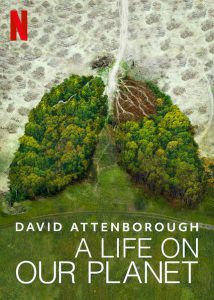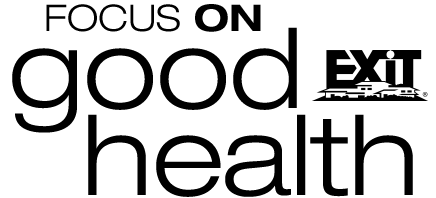 Growing up over the last 40 years, David Attenborough’s unmistakable and mellifluous voice was the narrated soundtrack to my budding environmentalism, and how I came to be nicknamed Granola. Over his extraordinary 94-year lifespan, he quite literally became the voice of planet earth and his most recent witness statement, A Life on Our Planet sends an urgent message of both a man and planet nearing the end of their lives.
Growing up over the last 40 years, David Attenborough’s unmistakable and mellifluous voice was the narrated soundtrack to my budding environmentalism, and how I came to be nicknamed Granola. Over his extraordinary 94-year lifespan, he quite literally became the voice of planet earth and his most recent witness statement, A Life on Our Planet sends an urgent message of both a man and planet nearing the end of their lives.
There were those familiar, vibrantly colorful, and intimate moments of nature going about its day, to which most of us remain oblivious, with poignant and personal moments of his relationship with this planet dating all the way back to his boyhood, when he first fell in love with fossils. The difference, this time, was the juxtaposed weight of footage featuring the harsh realities of what he calls man’s “unleashed” impact on nature and our single-handed destabilization of the planet’s biodiversity.
“We had broken loose. We were apart from the rest of life on earth. Living a different kind of life,” he explains of our rapid idea progression versus typical animal evolution, which transformed what a species could achieve. “Our predators had been eliminated. Most of our diseases were under control. We had worked out how to produce food to order. There was nothing left to restrict us. Nothing to stop us unless we stopped ourselves.”
There’s an acceptance and understanding of the brutality of natural selection, knowing nature is running its course, however it’s an entirely altering experience watching scenes of whale poaching, time lapses of devastating deforestation, and watching a polar bear swimming out into the blue oblivion in search of sea ice and food.
As you follow Attenborough through his various explorations and travels, the timeline of his life is used as a backdrop to show the stark statistics of world population, atmospheric carbon amounts, and remaining wilderness percentages dialing up and down respectively as he experiences, learns, and tries to educate the world on the interconnectedness of life. He and his crew, he solemnly admits, were among the first to capture bleaching of the coral reef before scientists even understood the enormity of what was taking place.
Almost as if he’s reminiscing, he speaks of our Halocene, our “Garden of Eden” as he calls it; a measure of time when the natural world worked so cohesively following the last of several extinction events on our planet as evident in the Earth’s strata. This compared to the new, and still-questioned epoch of Anthropocene that humanity is potentially entering now, where our species’ impact at a geological level is being researched and debated at this very moment.
After making it clear that the faster we progress as a species, the faster the climate changes, you’re left somewhere just before all hope is lost. But, like the people’s climate champion that he’s become known as, he gives us the very seeds of solutions that he believes will change our course; some examples of which he shares from smaller, successfully sustaining eco-systems and populations around the world.
He reminds us, as the camera zooms out and away from him standing amidst a now wild, unhindered, and overgrown Chernobyl, Russia – we are a part of and reliant upon nature’s delicate balance, and that Earth is more than capable of re-wilding itself, our choice is to act upon whether it does so with or without us.
In celebration of Earth Day, why not catch this documentary on Netflix, or watch one of his newest pieces The Year Earth Changed on Apple TV+, about how the world pandemic lockdown showed us just how much nature thrives when we step back.
By Melanie Robitaille, Sr. Staff Writer and Graphic Designer


